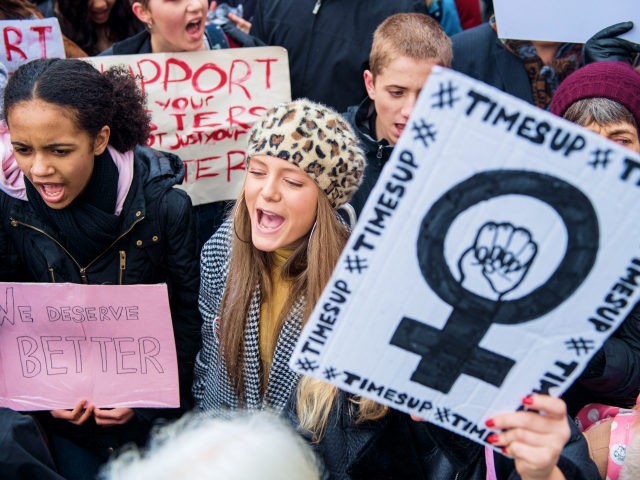Baroness Fox of Buckley has warned that treating wolf-whistling as a form of sexual violence would be a dangerous legal move, conflating speech with action and diminishing “the horror of rape and violence”.
On Wednesday, Home Secretary Priti Patel announced proposals that could make street harassment, such as wolf-whistling and cat-calling, a specific criminal offence in order to make women “feel safe” on Britain’s streets.
“We are taking action on street harassment. It is not acceptable that women and girls do not feel safe on our streets as a result of this behaviour,” Ms Patel wrote in The Times on July 21st.
Ms Patel continued: “We will ensure the police and prosecutors are confident about how to respond to public sexual harassment with new guidance. And, in order to prevent this from happening in the first place, we will deepen our understanding of who commits these crimes, why they do so and how it may escalate. But we will continue to look carefully at where there may be gaps in existing law and how a specific offence for public sexual harassment could address those.”
Claire Fox, an independent peer in the House of Lords and director of the Institute of Ideas, told talkRADIO on Thursday that there was a risk such legislation treating ‘street harassment’ as a form of sexual harassment could “trivialise serious sexual harassment and sexual violence by conflating all of these issues”.
“[It] diminishes the horror of rape and of violence and it conflates, effectively, speech with action as though it’s a slippery slope and the same thing. I think that’s very dangerous to do, legally,” Fox told Julia Hartley-Brewer.
Boris Govt: Misogyny to Be Recorded as a Hate Crime from Autumn https://t.co/Ke2vxG2cm2
— Breitbart London (@BreitbartLondon) March 18, 2021
Baronness Fox also said that while men who catcall or whistle at women on the street are rude and annoying, “they are not tomorrow’s rapists”.
Further, such a law — and other types of recent policing agendas focusing on feminist issues — “emphasises women as victims all the time”.
Fox said: “It creates a culture of fear for young women. I want young women to know what they need to do should they be seriously harassed, followed, or stalked — but not to think that some bad-mannered, loud-mouthed louts are going to attack them, because it’s not the same thing.”
“Violence is not the same as irritating behaviour. If we get that confused, women will constantly be in a victim position, because you’ll basically say that any minor sexist infringement is on a slippery slope to murder and mayhem. That will make young women feel like victims all the time,” she said.
In 2017, London’s Metropolitan Police Service said it was considering making wolf-whistling a form of “gender-based hate crime”, while the year before, Nottinghamshire Police became the first in Britain to record misogyny as a hate crime.
Some Labour MPs, including Stella Creasy, have demanded national legalisation go one step further and declare misogyny a hate crime and be recorded in the same way that racist hate crimes are recorded. Labour formally proposed making misogyny a hate crime in May, but the Conservative government rejected the proposals in June.
‘Being Offensive Is an Offence’ — UK Police Mocked for ‘Hate Crime Awareness’ Event https://t.co/l54qjZhuHx
— Breitbart London (@BreitbartLondon) February 22, 2021

COMMENTS
Please let us know if you're having issues with commenting.